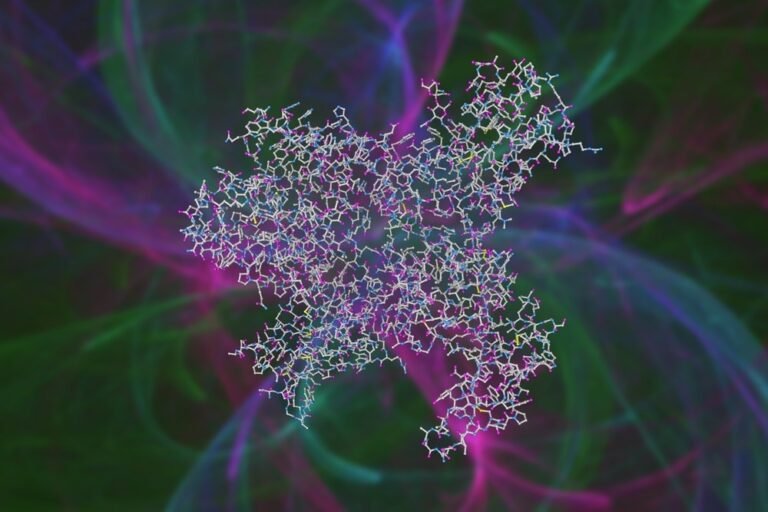IL-15 enhances the growth and survival of GPC3 CAR T cells, improving their ability to target and fight solid tumors
In a recent study published in Natureresearchers tested whether adding interleukin-15 (IL-15) to Glypican-3 Chimeric Antigen Receptor T (GPC3 CAR T) cells could improve the cells’ ability to expand, survive, and fight tumors in people with solid cancers.
Their findings show that, overall, IL-15 made GPC3 CAR T cells more effective in fighting cancer.
Background
CAR T cells have shown over 80% complete response rates in some blood cancers. CAR T cell therapy promises to improve survival in patients with solid tumors. However, conventional chemotherapy and radiotherapy are limited in their ability to treat massive or metastatic cancers and have significant side effects.
The efficacy of CAR T cells in solid tumors is often hindered by the tumor microenvironment (TME). The TME may contain inhibitory signals that block immune responses and lack cytokines such as IL-15, which are essential for optimal T cell function and survival.
About the study
Four clinical trials were conducted to evaluate T-cell therapy using a second-generation CAR targeting GPC3 in liver tumors. Two trials focused on pediatric patients and two on adults. The trials aimed to assess the safety, tolerability and recommended dose for the treatment of recurrent liver tumors.
Retroviral vectors carrying the GPC3 CAR and IL-15 genes were produced using a cell line and modified to prevent certain protein translations. T cells from patients were stimulated and transformed with the CAR genes. Cells were expanded, tested and cryopreserved.
Flow cytometry was used to assess the immune characteristics of CAR T cells and to monitor their persistence and function after infusion. Cytotoxicity tests involved mixing T cells with tumor cells to measure how effectively the CAR T cells killed the cancer cells.
After activation with tumor cells, the T cells were tested for cytokine production (immune signaling molecules) to assess their functionality. The persistence of CAR T cells in the body was measured by monitoring their genetic material using quantitative polymerase chain reaction (PCR) methods.
Serum cytokine levels were measured using a bead-based assay. A drug used to control the activity of CAR T cells was given in specific doses to patients. Single-cell ribonucleic acid sequencing (scRNA-seq) was then used to analyze the behavior of CAR T cells at the molecular level, helping to understand their function and persistence.
Findings
IL-15 significantly improved the antitumor efficacy of CAR T cell therapies compared to traditional CAR T cells, as shown in this study. The researchers developed 15.CAR T cells engineered to co-express IL-15, a cytokine that enhances T cell survival and function. These modified T cells exhibited superior expansion, function, and tumor targeting, linked to the ability of IL-15 to enhance oxidative phosphorylation and promote a memory T cell phenotype, thereby enhancing long-term persistence in the TME.
The study found that IL-15 enhanced oxidative metabolism in 15.CAR T cells, enhancing their cytotoxic activity and their differentiation into effector cells. This led to increased multifunctionality, which is essential for effective tumor destruction.
Gene expression analysis identified key markers, such as Jun Proto-Oncogene (JUN) and Interferon Regulatory Factor 7 (IRF7), associated with regulation of the immune response and enhancement of tumor infiltration through enhanced T cell function. These pathways, particularly type I interferon (T1IFN) signaling and oxidative phosphorylation, were upregulated in 15.CAR T cells, further enhancing their ability to kill tumors.
Safety was closely monitored, revealing no sign of IL-15-induced malignant transformation in the engineered T cells. However, cytokine release syndrome (CRS) was more common in patients receiving 15.CAR T cells, although manageable with immunomodulating therapies. Notably, the 15.CAR group showed a higher incidence of CRS, highlighting the need for close monitoring.
A key observation in the study was the antigen-dependent expansion of 15.CAR T cells. The absence of GPC3 CAR expression in some T cells indicated that their expansion relied on interactions with tumor antigens, which may contribute to sustained antitumor responses and enhanced T cell persistence.
To mitigate CRS, safety mechanisms such as inducible caspase 9 (iC9) were used in three patients, successfully resolving toxicities and ensuring patient safety. Gene expression analysis revealed that 15.CAR T cells exhibited greater cytolytic activity and a stronger tumor response than conventional CAR T cells, with a shift toward memory subsets of effectors such as Cluster of Differentiation 8 (CD8) and Homing Best Oriented T cell Transcription Factor ( THE HOBBIT). Additionally, responders showed better expansion of 15.CAR T cells compared to non-responders, further demonstrating the role of IL-15 in enhancing CAR T cell efficacy.
conclusions
Overall, the study highlights the potential of IL-15-modified CAR T cells to improve treatment outcomes in solid tumors by enhancing T cell function, expansion, and tumor targeting while maintaining a manageable safety profile.
Journal Reference:
Interleukin-15 GPC3 CAR T cells primed for patients with solid cancers. Steffin, D., Ghatwai, N., Montalbano, A., Rathi, P., Courtney, AN, Arnett, AB, Fleurence, J., Sweidan, R., Wang, T., Zhang, H., Masand, P., Maris, JM, Martinez, D., Pogoriler, J., Varadarajan, N., Thakkar, SG, Lyon, D., Lapteva, N., Zhuyong, M., Patel, K., Lopez-Terrada, D., Ramos, CA, Lulla, P., Armaghany, T., Grilley, BJ, Gottschalk, S., Dotti, G., Metelitsa, LS, Heslop, HE, Brenner, MK, Sumazin, P. ., Heczey, A. Nature (2024). doi: 10.1038/s41586-024-08261-8
